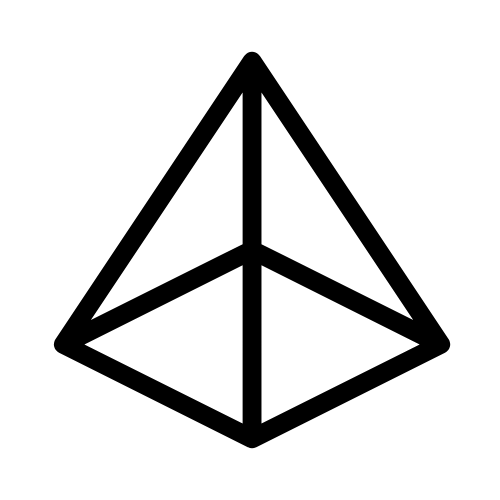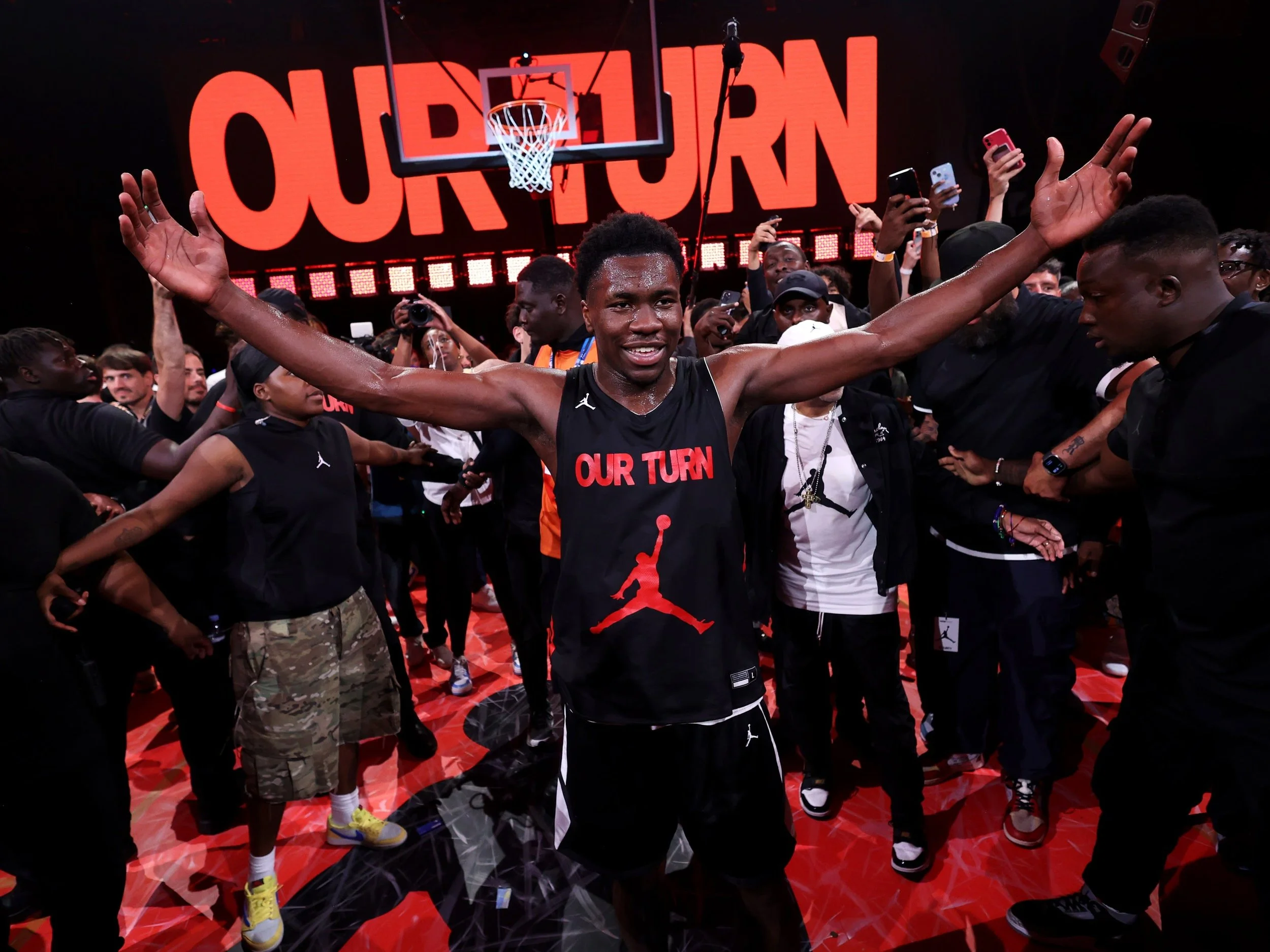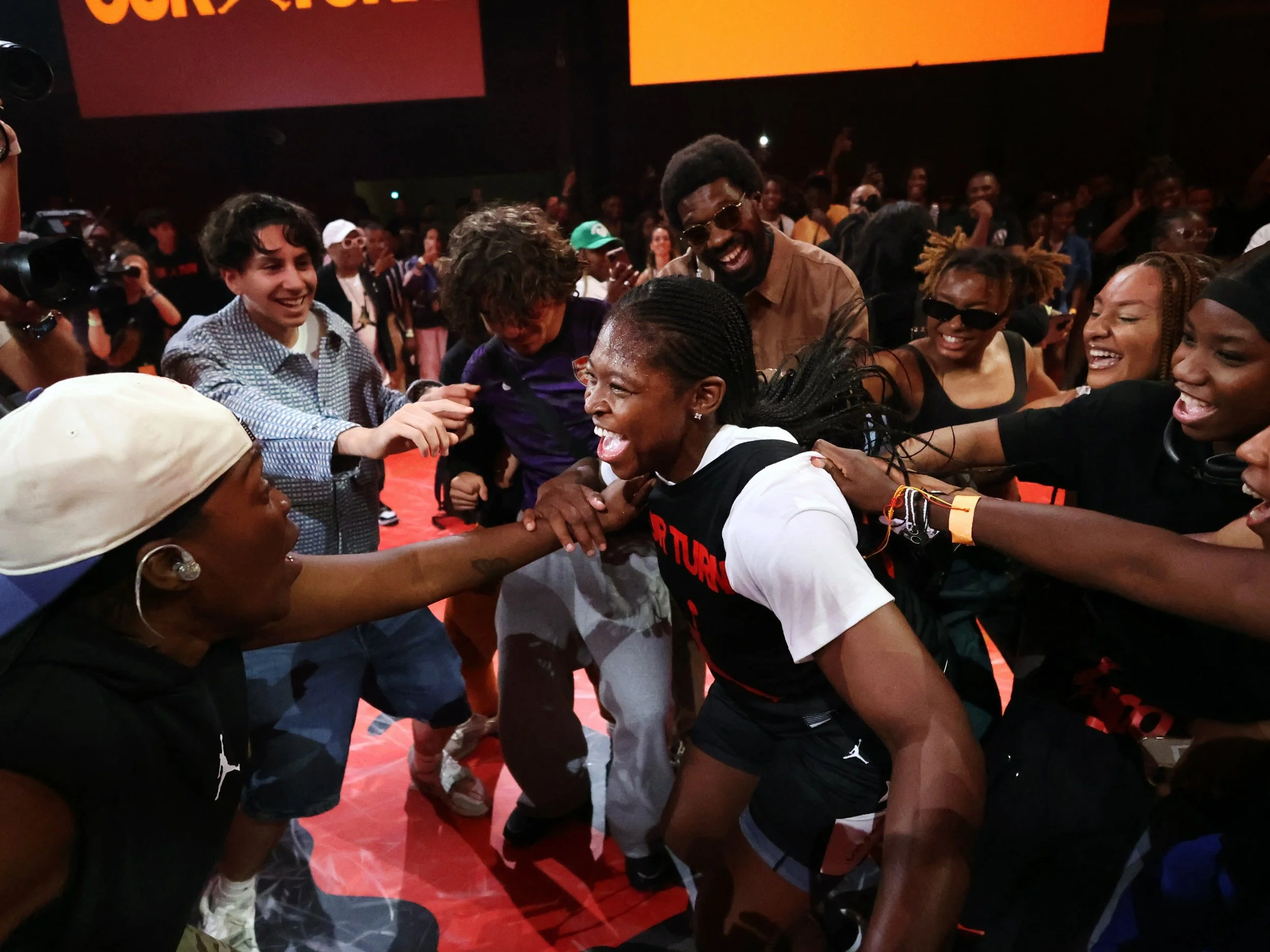Paris is Game Not Just For the Summer Olympics But For Basketball Too…
From the famed and heavily photographed Duperré court to its consistent export of French talent to the NBA, Paris proved this summer that it’s not just an Olympic hotspot—it’s a basketball haven too. The Culture Crypt looks back on Summer 2024, reflecting on how the city continues to embrace and elevate the game.
I have never truly been obsessed with any sport.
I always thought you fit in either the almost religious, borderline fanatic bracket or among the uninterested, indifferent population who have better things to do with their time. But these generalisations and snarky remarks about those who enjoy sports—whether participating or observing—are just that: generalisations and snarky remarks. Everything I once thought about sports, of ball games and more specifically basketball, was undone by a fraction of a summer I had spent in Paris.
I grew up in a football-mad household and went from supporting Manchester United in my youth (strangely inherited from my Scouse mother) to supporting West Ham which was right on my doorstep. I recognised tennis legends and Formula 1 icons like Serena Williams and Lewis Hamilton on TV and cheered them on regularly. I loved the spectacle of the Olympics, of athletic titans like Mo Farah and Usain Bolt.
But aside from dribbling drills in PE, watching Like Mike and wearing NBA caps, it is safe to say basketball was never at the forefront of my mind when it came to sports—at least not nearly in the same way as for young people in Paris.
Across the Channel, basketball is making a lot of noise. As an increasingly popular pastime, it is finding a comfortable home among local Parisian youth. One of the most visible aspects of basketball culture in Paris is its impact on streetwear, with Air Jordan sneakers donned everywhere you look, far beyond the court.
You can't walk down the street without walking past someone wearing a pair of Jordans. It doesn't matter the style or model, the sneaker has evolved from a performance shoe to an enduring fashion statement. Today, it is just as likely to be seen at a high-end boutique store as it is on the basketball courts of the city's banlieues.
How the Court Cultivates Community
Where football has dominated French sports culture, basketball has stealthily grown in appeal. In a sprawling metropolis like Paris, basketball has become incredibly accessible, with several well-maintained courts scattered throughout the city, some of which have become landmarks in their own right. One of the most famous of these courts is Pigalle's colourful playground, the Duperré Court, which is often used for sport and also as a photoshoot location by budding and established photographers from the area. In many ways, basketball has become a conduit for community building in the city's neglected districts, where young people come together not only to play, but to socialise and bond with their peers.
In areas like the 18th arrondissement, basketball courts provide a much-needed escape from the challenges of everyday life, offering a positive and constructive outlet for energy, emotion, and ambition for Paris' young people. I got to experience the role of accessible public spaces like District 23, where the historic former Tati Barbès department store was "renovated into a community space for Paris and international youth" with the help of Jordan Brand and its creative director Youssouf Fofana.
With the NBA's rapidly growing presence in Paris, through games and events, the sport is expanding. The increasing number of French players in the NBA is putting France on the map for basketball, including Victor Wembanyama at San Antonio, Tidjane Salaün of the Charlotte Hornets, Alex Sarr at the Washington Wizards and Zaccharie Risacher from Atlanta Hawks.
The game continues to make waves at both local and professional levels. In the summer of 2024 when the Olympics had taken place in Paris, both the French men's and women's basketball team impressively won second place in the tournament. This victory highlights not just the ever-growing nature of the sport but its potential for upward mobility, as basketball is changing lives on and off the court.
Before stepping into the former Tati Barbès store, I was apprehensive about how District 23 would serve the local area. But the creative director, who is also a local Parisian, hoped that by "amplifying the 18th arrondissement to the world, we could elevate the community members' collective pursuit to [...] create a new legacy, not just for themselves but for the future generations coming behind them."
As a hub for local young people to explore creativity through sport and culture, District 23 being right on their doorstep—not in some far-away place they would never step foot in—makes all the difference. Its resources include an immersive "summer school" curriculum for dozens of young creatives to dive deep into design and technical skills, along with an intensive programme on the intricacies of starting a brand, inspired by Youssouf's own journey to becoming a designer while growing up among Paris' African diaspora.
I was enamoured by the thoughtfulness and how full-circle this moment was for Fofana, who had worked with Jordan years after navigating a series of jobs, working as a salesman, in a bank and at a non-profit, before establishing his own brand Maison Château Rouge.
'The One'
The highlight of my time in Paris was a tournament called 'The One' where Jordan invited hoopers from across the globe, "representing cities from across the US (NY, Chicago, LA), Asia-Pacific (Philippines, Japan, Australia), Europe (London, Paris) and many more [to] compete for the chance to be named ‘The One’ – the best one-on-one player in the world.” Film legend Spike Lee, as well as NBA stars Zion Williamson and Chris Paul, were among those in attendance, cheering on the competitors from the crowd. There, in the District 23 arena, I witnessed the trash-talking, explosive plays, endless nerves, contagious jubilation and the electrifying humming in the air before the buzzer goes off after an impossible shot.
Throughout the tournament, everyone's eyes were following the ball and each hooper’s powerful plays. It was addictive and after each round was up, whether another player went home or one was through to the next, I never wanted it to end. My first time courtside and it was unforgettable—almost as if the game I was previously indifferent to on-screen had always been this cinematic and engaging. I just never paid attention.
During a conversation with Shayan Mazaheri, who works at basketball media platform Overtime, we discussed his early love for the sport, which was influenced by his family in the US and the NBA. He mentioned local initiatives like the All-Parisian Games, which help to promote the sport and local community.
For Mazaheri, basketball is a means of asserting one’s identity, particularly in a big city like Paris which can sometimes feel alienating in its vastness. In this context, he recognised how basketball can be a pathway to success, citing influential figures like All-Parisian Games founders Paul Odonnat and Bakary Sakho; basketball player and influencer Mamayo known for his viral plays; and French-Algerian basketball player Nadir Hifi, known as the Paris Prince and for his inspiring journey and fierce playstyle. All are now able to pursue basketball full-time.
For these reasons, Shayan remained hopeful for the future of Parisian basketball. With the NBA Paris Games in 2025 and increased international recognition, he said that the sport will continue to grow in popularity within the city.
For Parisian youth, however, basketball represents more than just a game—it's a source of community, identity, and aspiration. During my short time in Paris, I have come to learn that sport lends so much to us culturally, creatively and communally. Basketball transcends boundaries, languages, and communities, like many sports do and connects us all to strive towards a bigger purpose and allows many to dream. It is a team sport with the rules applying off the court as well. The game may have been established in North America, but it is taking flight in France and playing a central role in the lives of many young Parisians.




